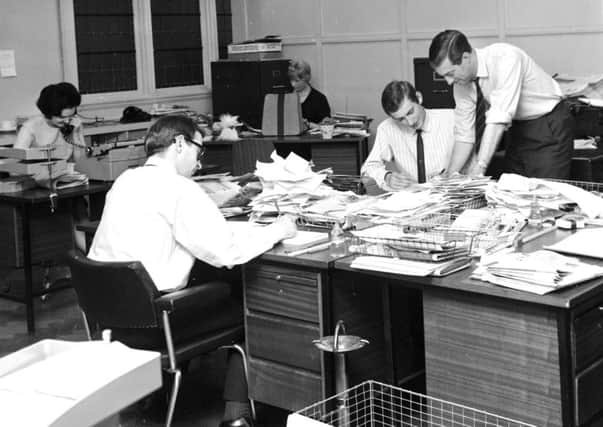David Walsh: Impartial journalism more important than ever


‘In old days, men had the rack. Now they have the press.” Acerbic Oscar Wilde was hardly known for mincing his sentiments. Writing in an 1891 pamphlet, his take on the actions of the media would find fertile ground in contemporary Britain.
Bemoaning the temerity of questioning journalists, Wilde – preoccupied no doubt with maintaining the secret of his sexual orientation in the morally austere Victorian era – would assuredly have been a poster boy for the anti-media intrusion campaign group Hacked Off if were he alive today. Even revered Mahatma Gandhi was once heard to quip: “I believe in equality for everyone, except reporters and photographers.”
Advertisement
Hide AdAdvertisement
Hide AdIn the post-Leveson media landscape, media integrity is a devalued currency in the wake of the numerous phone hacking scandals. Worse still are accusations of bias and partisanship, all at a time when expressions like “post-truth” have found their way into common parlance (“Post-truth” was the Oxford English Dictionary’s word of the year for 2016).
In a week when MPs spoke out about the abuse they received during the course of their public service (notably Labour MP Diane Abbott, who has been the target of racist and misogynist ravings), we also heard on Friday that the BBC’s political editor Laura Kuennsberg was given a bodyguard as she toured the country during the June general election campaign. Subject to ferocious online abuse, Kuennsberg was decried for her perceived anti-Corbyn inclination. Conversely, voices on the right sought to silence her and her colleagues for her reporting. At a Ukip hustings, she was heckled and told to “crawl back down her hole”. There was even a petition demanding the BBC remove her from her post as political editor attracted 35,000 signatories after her coverage of Corbyn shadow cabinet reshuffles and the local elections.
In our social media-dominated world, the vitriolic 140-character tweet – the contemporary equivalent of a green ink letter – has well and truly come into its own. Hiding behind an avatar, keyboard warriors fire off malicious and indiscriminate tweets with fervour, often in complete anonymity. What hope do we have when the leader of the free world, US president Donald Trump, is a key advocate of using it to voice his displeasure at journalists and the media at large?
Edmund Burke iterated the significance of the Fourth Estate, which he said was more important than the other three: the clergy, the nobility, and the commoners. Journalism is a noble profession which attracts those who idealistically begin their careers with the intent of doing good and holding the powers that be to account.
As Brexit progresses and the Trump presidency reaches maturity, we are adrift at sea without bearings to navigate a course through the endless spin and lies. Moreover, further attacks on politicians and journalists are sadly to be expected in the weeks and months ahead.
As well as bruised confidence in our elected politicians, the reputation of journalism has taken a battering. It’s time fences were mended and the vital work reporters do was encouraged rather than disparaged. Peers in the print, online and broadcast media are worthy of our criticism but they should also be worthy of our praise. Journalists who are worth their salt endeavour to discover the truth when it is obscured and inform accurately without agenda. In short, journalism should be our compass as we chart our course through the maelstrom.